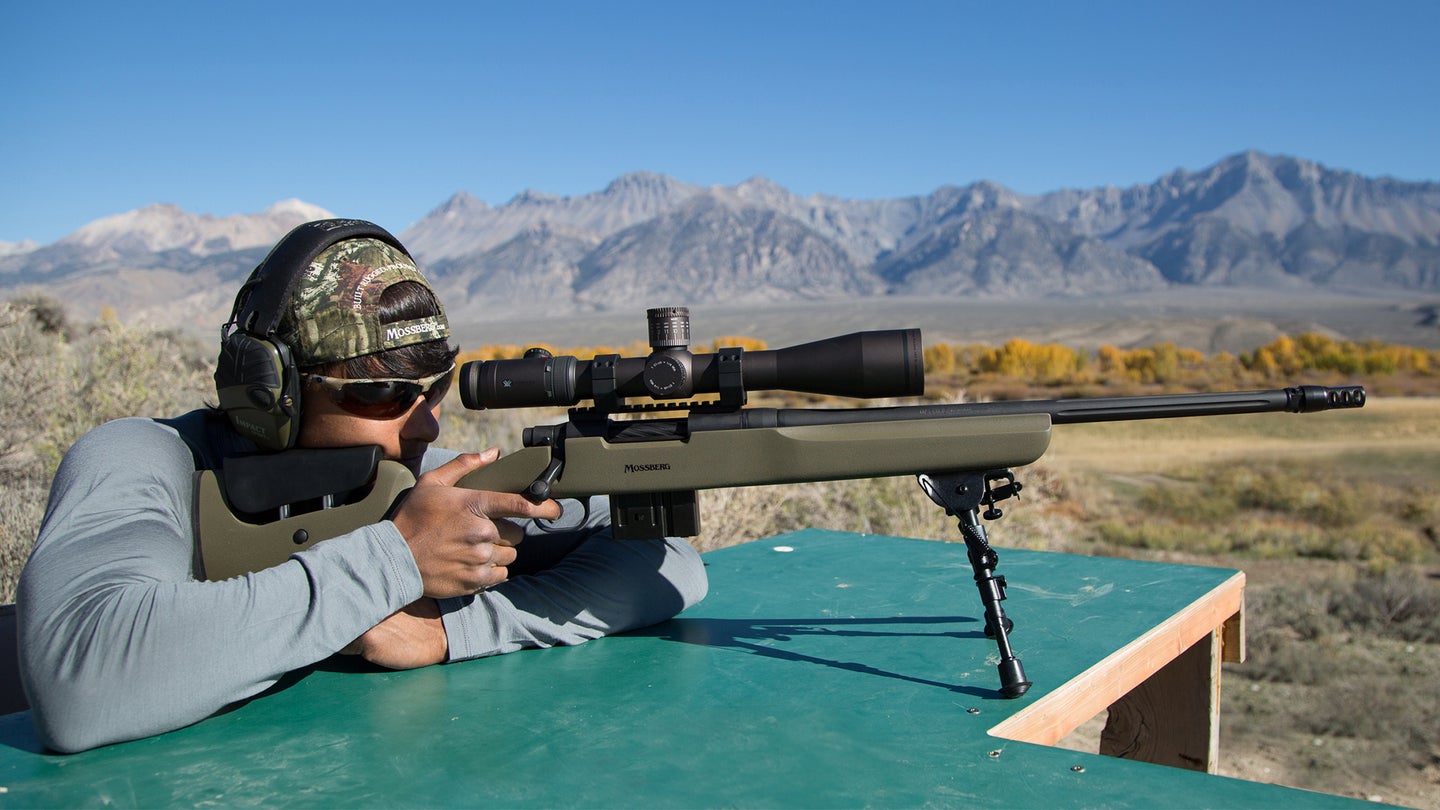Muzzle Brake vs Compensator: What’s the Difference?

We may earn revenue from the products available on this page and participate in affiliate programs. Learn more ›
When it comes to muzzle brake vs compensator—no matter which one is right for you—one thing is for sure: You have more opportunity to employ these devices and more options for buying them than ever. Manufacturers are threading barrels for brakes and compensators (as well as silencers) like never before. This is a good thing for hunters and shooters. Barrel threads give you options to attach things to a rifle that can improve accuracy, felt recoil, and noise.
But with options comes choices, like: muzzle brake vs compensator. So here’s a quick guide on what sets these two devices apart to help you make the right choice for you needs.
Muzzle Brake vs Compensator: Key Differences
A muzzle brake (left) and compensator (right), both made by Wilson Combat. Wilson Combat
Both muzzle brakes and compensators are used to direct the gasses from a fired cartridge in a helpful way. They do this via ports, or holes, cut into the sides or top of the device. As the bullet exits the muzzle of a barrel, the gasses pushing it out are forced out of these ports, influencing the direction and speed at which the rifle will move under recoil. Muzzle brakes direct gasses out the left and right sides of the muzzle. They’re designed to reduce recoil. Compensators direct gas out of the top of the muzzle, forcing it downward with every shot and reducing muzzle flip, or jump—a gun’s tendency to buck upwards under recoil.
Muzzle Brake vs Compensator: Table of Contents
What Does a Compensator do?
What Does a Muzzle Brake do?
What are the Advantages of a Muzzle Brake vs Compensator?
What are the Disadvantages of a Muzzle Brake vs Compensator?
What Does a Muzzle Brake Do?
A muzzle brake reduces recoil and helps shooters make quicker, accurate follow-up shots. Guy Sagi / Adobe Stock
Muzzle brakes were first used on artillery pieces and tanks. Engineers wanted to reduce the recoil and the amount of space it takes for tank-mounted artillery to recoil backward. They found that they could do this by bleeding gas from each shot out of the right and left sides of the muzzle.
The muzzle brake on this artillery piece operates the same way muzzle brakes do on rifles. It directs gasses outward from the muzzle reducing recoil. US Army
Today, muzzle brakes are used in everything from anti-tank cannons to hunting rifles. They all pretty much serve the same purpose of reducing recoil, and muzzle brakes come in handy on rifles that shoot heavy-recoiling cartridges. Muzzle brakes are also used a lot in long-range shooting competitions to help shooters stay on target between shots. Modern muzzle brakes can reduce the felt recoil of magnum cartridges to negligible levels, which also helps prevent bad habits like flinching before a shot.
What Does a Compensator Do?
The muzzle end of this Smith & Wesson M&P is fit with a Wasatch Arms compensator to reduce muzzle flip. Wasatch Arms
The earliest compensators were used on submachine guns. They operate a lot like a muzzle brake, but they use gasses to direct the muzzle downward as it climbs under semi- and fully automatic fire. The Cutts Compensator was introduced for the Thompson submachine gun in the 1920s. A version was also made for hunting shotguns and built with the added benefit of an adjustable choke.
Go into any gun shop today, and there’s a decent chance you’ll see a few old shotguns outfitted with Cutts Compensators. They were extremely popular, but have largely been replaced by ported shotgun barrels and screw-in shotgun chokes. In the 1970s, compensators worked their way into competitive shooting. Pistol hot-rodders ported barrels and added compensators to reduce muzzle flip under rapid fire. Today, competitors who need to shoot fast still make up the bulk of compensator users. There are also linear compensators that have been designed to direct gasses downrange. By doing so, linear compensators reduce the noise shooters hear at the firing line.
What are the Advantages of a Muzzle Brake vs. Compensator?
The advantages of muzzle brakes vs. compensators are pretty straightforward. Muzzle brakes reduce recoil while compensators reduce a muzzle’s tendency to climb under rapid fire. Both are most helpful to competitive shooters, but they do have some applications for hunting. Hunters who need to take quick, accurate follow-up shots—like pig hunters and duck hunters—can benefit from a compensator or ported barrel. Big-game hunters shooting magnums and dangerous-game cartridges can benefit from the reduced recoil of a muzzle brake. However, that lack of recoil comes at a price.
Read Next: The Best Rifles of 2023
What are the Disadvantages of a Muzzle Brake vs. Compensator?
The big problem with muzzle brakes and compensators is that they’re loud (with the exception of a linear compensator). The noise of a firearm comes from gasses rapidly expanding out of the barrel. When you re-direct those gasses out the sides of a barrel, you also redirect the noise more toward anyone next to or behind the gun. For hunters without ear protection and guides, this can be a problem. Most dangerous-game guides hate muzzle brakes. And at the range, shooters with brakes are seen as annoying to some other shooters. But there is another solution. If you want to reduce recoil and noise you can use a suppressor. They thread on the same way as a muzzle brake, but they trap and slow expanding gasses, reducing noise as well. If you do decide to run a brake or compensator, consider doubling up on ear protection.
The post Muzzle Brake vs Compensator: What’s the Difference? appeared first on Field & Stream.
Articles may contain affiliate links which enable us to share in the revenue of any purchases made.
